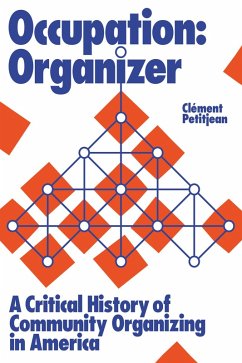A trenchant history of community organizing and a must-read for the next generation of organizers seeking to learn from the successes, failures, and contradictions of the past.
The community organizing tradition is long overdue for reexamination. In Occupation: Organizer, scholar and activist Clément Petitjean traces that history from its roots in the Progressive movement to its expansion and diverging paths during the social movements of the 1960s and '70s, when Saul Alinsky became the most popular professional radical in the US while groups like Student Nonviolent Coordinating Committee, Students for a Democratic Society, and the Black Panthers recast organizers as horizontal, antihierarchical spadeworkersthose who do the work as part of the community, rather than standing apart from it.
But in the years since, the professionalization of organizing work has only increased, despite the critiques. Only by grappling with its limitations and pitfalls, Petitjean insists, can we learn to build durable, effective organizations for change.
The community organizing tradition is long overdue for reexamination. In Occupation: Organizer, scholar and activist Clément Petitjean traces that history from its roots in the Progressive movement to its expansion and diverging paths during the social movements of the 1960s and '70s, when Saul Alinsky became the most popular professional radical in the US while groups like Student Nonviolent Coordinating Committee, Students for a Democratic Society, and the Black Panthers recast organizers as horizontal, antihierarchical spadeworkersthose who do the work as part of the community, rather than standing apart from it.
But in the years since, the professionalization of organizing work has only increased, despite the critiques. Only by grappling with its limitations and pitfalls, Petitjean insists, can we learn to build durable, effective organizations for change.
Dieser Download kann aus rechtlichen Gründen nur mit Rechnungsadresse in A, D ausgeliefert werden.









